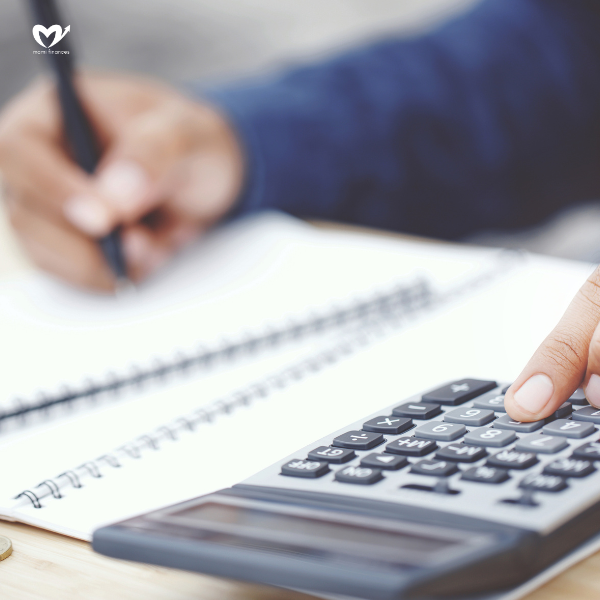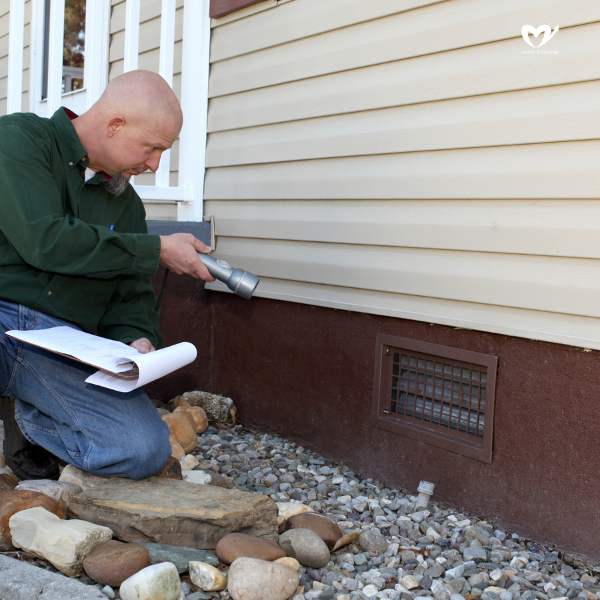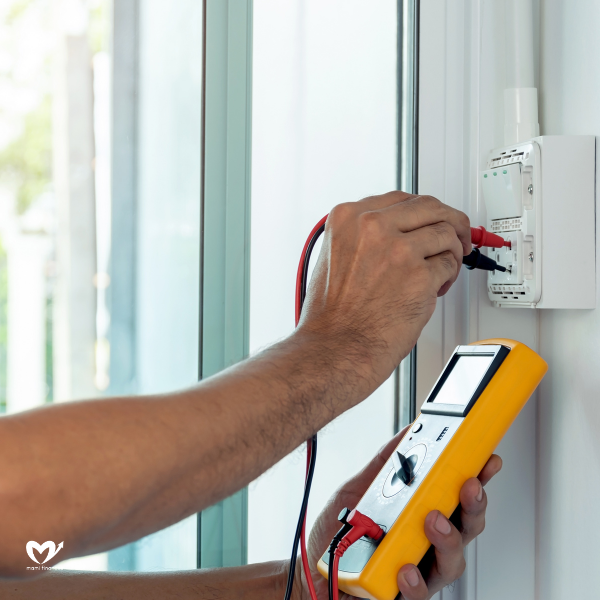How to Calculate the Ideal Amount to Budget for Home Repairs
Budgeting for home repairs is crucial for several reasons. First, it helps homeowners plan and allocate their financial resources effectively. By setting aside a specific amount for repairs, homeowners can avoid being caught off guard by unexpected expenses. Second, budgeting allows homeowners to prioritize their repairs according to urgency.
This ensures that critical repairs are addressed promptly to prevent further damage. Lastly, budgeting for home repairs promotes financial stability and peace of mind, as homeowners can rest assured knowing that they have the necessary funds to maintain their homes and protect their investments.

Budgeting for home repairs
Budgeting for home repairs is of utmost significance as it allows homeowners to plan and prepare for unexpected expenses. By setting a budget, homeowners can allocate their financial resources wisely, ensuring that they have the necessary funds to address urgent repairs and prevent further damage.
Moreover, budgeting promotes financial stability and peace of mind, knowing that there are funds available to maintain and protect their homes. It also enables homeowners to prioritize repairs based on importance and helps them make informed decisions about DIY versus hiring professionals. Ultimately, budgeting for home repairs is crucial for the long-term maintenance and value of a home.
Common home repair expenses to consider
When budgeting for home repairs, it is crucial to consider common expenses that may arise. Some of these expenses include:
- HVAC system repairs or replacement: Heating, ventilation, and air conditioning systems are essential for maintaining a comfortable living environment. However, they can be costly to repair or replace.
- Plumbing issues: Leaky faucets, clogged drains, or burst pipes can lead to significant water damage if not addressed promptly. Budgeting for plumbing repairs is essential to prevent further complications.
- Electrical repairs: Faulty wiring, electrical surges, or outdated electrical systems may require repairs or updates to ensure safety and functionality.
- Roof repairs: Roof leaks, damaged shingles, or structural issues can lead to water damage, mold growth, and compromised insulation. Budgeting for roof repairs is key to maintaining the integrity of your home.
- Foundation and structural repairs: Issues with the foundation can lead to various problems, such as uneven floors, cracks in walls, or door and window misalignment. Addressing these repairs promptly can prevent further damage.
- Exterior maintenance: Regular maintenance of the exterior, including painting, siding replacement, or deck repairs, is important for curb appeal and preventing deterioration.
- Appliance repairs or replacement: As appliances age, they may require repairs or replacement. Budgeting for these expenses ensures you can address any issues with essential appliances in your home.
By considering these common home repair expenses and incorporating them into your budget, you can be prepared for any unexpected repairs that may arise.

Evaluating the Condition of Your Home
When it comes to budgeting for home repairs, it is crucial to assess the current condition of your home. Take the time to inspect your property thoroughly, looking for any signs of wear and tear. Pay attention to areas such as the HVAC system, plumbing, electrical wiring, roof, foundation, and exterior features.
Identifying potential issues early on can help you plan and budget accordingly. Also, consider the age of your appliances and their condition. This evaluation will give you a clear picture of the repairs and maintenance tasks that need to be prioritized and accounted for in your budget.
Assessing the current condition of your home
When it comes to budgeting for home repairs, it is crucial to assess the current condition of your home. Take the time to inspect your property thoroughly, looking for any signs of wear and tear. Pay attention to areas such as the HVAC system, plumbing, electrical wiring, roof, foundation, and exterior features.
Identifying potential issues early on can help you plan and budget accordingly. Also, consider the age of your appliances and their condition. This evaluation will give you a clear picture of the repairs and maintenance tasks that need to be prioritized and accounted for in your budget.
Identifying potential future repairs
When budgeting for home repairs, it's essential to consider potential future repairs that may arise. Take note of any signs of wear and tear on different components of your home, such as the HVAC system, plumbing, and electrical wiring. Look for any cracks in the foundation, leaks in the roof, or deteriorating exterior features.
Also, consider the lifespan of your appliances and anticipate when they may need to be replaced. By identifying potential future repairs, you can budget for these expenses in advance and ensure that you are financially prepared for any unexpected maintenance needs.
Calculating the Ideal Amount to Budget
When it comes to budgeting for home repairs, calculating the ideal amount can be a bit tricky. A few factors must be considered to ensure you set aside enough funds. First, take into account the age and condition of your home. Older homes may require more frequent repairs and maintenance.
Also, consider your home's size and its systems' complexity. A larger home or one with intricate features may require a larger budget. It's also helpful to consult professionals for estimates, as they can provide insights into potential costs. Considering these factors, you can calculate an ideal budget that adequately covers your home repair expenses.

Factors to consider when calculating the ideal budget
When calculating the ideal budget for home repairs, there are several factors to consider. First, take into account the age and condition of your home. Older homes may require more frequent repairs and maintenance. Also, consider the size and complexity of your home and its systems.
A larger or more intricate home may come with higher repair costs. Also, research the average costs of common home repairs in your area to better understand the potential expenses. Considering these factors, you can determine an ideal budget that will adequately cover your home repair needs.
Consulting professionals for estimates
When budgeting for home repairs, it can be helpful to consult professionals for estimates. Hiring a professional to assess the extent of the repairs needed and provide an accurate cost estimate can ensure that you budget accordingly.
Contractors or repair specialists can provide expertise in their respective fields and offer valuable insights into the project's scope. They can also help you identify any underlying issues that may require attention. By seeking professional estimates, you can make more informed decisions about how much to budget for home repairs and avoid unexpected financial surprises.
Prioritizing Home Repairs
When it comes to home repairs, prioritization is key. Determine which repairs are most critical and need immediate attention. This could include safety issues, such as electrical problems or structural damage. Next, consider repairs that prevent further damage or deterioration, such as fixing a leaky roof or repairing a cracked foundation.
Finally, prioritize repairs that enhance the functionality and aesthetics of your home, such as updating outdated appliances or renovating a bathroom. By prioritizing your repairs, you can allocate your budget effectively and ensure that the most important issues are addressed first.

Determining the most critical repairs
When prioritizing home repairs, it's important to identify the most critical ones that need immediate attention. These are repairs that directly impact the safety and livability of your home. Examples include electrical problems, structural damage, or plumbing issues that could lead to water damage.
Addressing these repairs promptly is crucial to prevent further damage or potential hazards. To determine the most critical repairs, conduct a thorough inspection of your home or consult with professionals who can assess the condition and identify urgent repair needs. Prioritizing these critical repairs will ensure the safety and functionality of your home.
Creating a prioritized repair plan
Creating a prioritized repair plan is essential to effectively manage your home repairs. Start by listing all the repairs that need to be addressed, including both urgent and non-urgent ones. Then, prioritize them based on their importance and impact on safety and livability. Consider factors such as potential hazards, cost, and time required for each repair.
Breaking down the repairs into smaller tasks and setting a timeline will help you manage them more efficiently. By creating a prioritized repair plan, you can tackle the most critical repairs first and ensure that your home is safe and well-maintained.

Tips for Saving Money on Home Repairs
When it comes to home repairs, saving money is always a priority. Here are some helpful tips to keep your repair costs in check:
- DIY vs. Hiring Professionals: Consider whether you can tackle the repair yourself, as hiring professionals can be expensive. Simple tasks like painting or fixing minor plumbing issues can often be done on your own.
- Shop Around for Materials: Don't settle for the first supplier you find. Take the time to compare prices and look for discounts or promotions. You may find that buying materials online or from local hardware stores can save you a significant amount.
- Research Cost-Saving Options: Look for cost-effective alternatives to traditional repairs. For example, instead of replacing your entire kitchen cabinet, you can opt for refacing or repainting them to give them a fresh look at a fraction of the cost.
- Regular Maintenance: Stay on top of regular maintenance tasks to prevent more significant problems down the line. Simple steps like cleaning gutters, sealing cracks, and maintaining your HVAC system can help avoid costly repairs in the future.
- Consider Long-Term Solutions: When faced with a repair, think about the long-term implications. Investing in higher-quality materials or upgrading to energy-efficient appliances may cost more upfront but can save you money in the long run through reduced maintenance and utility bills.
By implementing these tips, you can effectively save money on your home repairs without compromising on quality or safety.
DIY vs. hiring professionals for repairs
When it comes to home repairs, deciding between tackling the task yourself or hiring professionals can be a tough choice. DIY repairs offer cost savings and the opportunity to learn new skills. You can completely control the process and customize it to your preferences. However, DIY repairs may not always be suitable for complex tasks or if there are potential risks involved.
On the other hand, hiring professionals provide expertise and saves you time. They have the necessary tools and experience to handle the repairs efficiently. Consider your capabilities, the complexity of the repair, and the potential risks before making a decision.
Exploring cost-saving options
When budgeting for home repairs, it's important to explore cost-saving options to maximize your savings. Here are some strategies to consider:
- DIY Repairs: If you have the skills and knowledge to tackle repairs yourself, you can save money on labor costs. However, be cautious and only undertake projects that you feel confident in completing.
- Comparison Shopping: Take the time to shop around and compare prices for materials and services. Different suppliers and contractors may offer varying prices, so it's worth doing some research to find the best deals.
- Utilize Discounts and Coupons: Look for discounts, sales, and coupons that can help you save money on necessary repairs and materials. Many retailers and service providers offer special promotions that can significantly reduce your costs.
- Consider Alternative Materials: Explore alternative materials that are less expensive but still meet your needs. For example, opting for laminate flooring instead of hardwood can help you stay within your budget.
- Regular Maintenance: Implementing a regular maintenance schedule can help prevent major repairs in the future. Simple tasks like cleaning gutters, inspecting pipes, and changing air filters can save you from costly repairs down the line.
By exploring these cost-saving options, you can make your home repairs more affordable and still maintain the overall condition of your home.

Conclusion
Budgeting for home repairs is essential for homeowners to ensure their homes are well-maintained and to avoid financial stress when unexpected repairs arise. By accurately assessing the current condition of your home, identifying potential future repairs, and calculating the ideal budget based on factors such as home value and square footage, you can better prepare for these expenses.
Also, prioritizing repairs and exploring cost-saving options can help maximize savings. Remember, regular maintenance is key to preventing major repairs in the future. By following these steps, you can successfully budget for home repairs and maintain the overall condition of your home.
Recap of the importance of budgeting for home repairs
Budgeting for home repairs is a crucial aspect of homeownership. By accurately assessing the condition of your home and identifying potential future repairs, you can plan and allocate funds accordingly. Having a budget for home repairs helps ensure you can promptly address maintenance issues, preventing them from becoming costly and extensive problems.
It also provides financial stability, minimizing the stress and burden of unexpected repair expenses. By following the steps outlined in this article, homeowners can effectively budget for home repairs and maintain the overall condition and value of their homes.
Steps to take for successful budgeting and prioritization
When it comes to successful budgeting for home repairs, there are several steps you can take to ensure that you allocate your funds appropriately. First, make a comprehensive list of all the repairs and maintenance tasks that must be addressed. Next, prioritize the repairs based on their urgency and importance. This will help you allocate more funds to the critical repairs and address them promptly.
Also, consult professionals for estimates to determine the costs involved accurately. Finally, constantly review and update your budget to accommodate any changes or unforeseen repairs that may arise. Following these steps allows you to manage your budget and prioritize repairs effectively.







